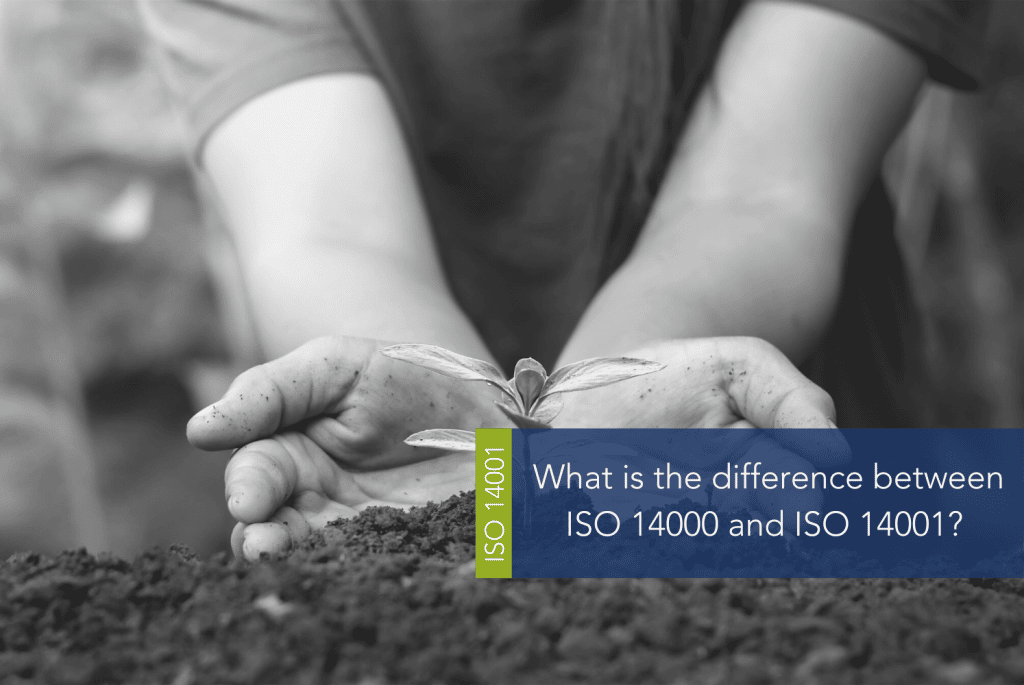
What is the difference between ISO 14000 and ISO 14001?
January 10th, 2023 By AmywrightISO 14000 and ISO 14001 both relate to a company’s environmental standards – specifically, the former acts as a ‘family’ of standards, with the latter existing under this as a specific subset within that series. Firms that work with certain materials (such as heavy metals, flammable chemicals, and petroleum products) seek these environmental standard certifications to showcase their commitment to safe and healthy business practices. Virtually any company can benefit from implementing these standards.
With the world becoming more environmentally conscious, businesses are starting to place a stronger emphasis on conforming to specific environmental standards. ISO 14000 series certifications help a business demonstrate that they’re working to limit the waste they produce, and are actively preventing damage to the planet by bringing their processes into compliance with international standards. By understanding the definitions of ISO 14000 and ISO 14001, alongside their core differences, you can see which standards offer the most benefits for businesses.
What does ISO 14000 deal with?
The ISO 14000 series intends to promote strong environmental management practices across organisations, and important and contemporary topic. There are three key goals that ISO 14000 hopes to facilitate for businesses;
- Minimising environmental damage
- Complying with environmental regulations (in the industry and nation)
- Continuously improving environmental performance
It’s possible to apply these standards to any organisation, in any sector, as every business impacts the environment in some way. Though any business could benefit from an ISO 14000 certification, companies that explicitly deal with environmentally sensitive matters, or produce high amounts of waste, will especially benefits from these practices.
Many individual standards come under the ISO 14000 umbrella, with ISO 14001 just being one of many, despite being the most popular of the series. For example, ISO 14006 is about implementing ecodesign, which refers to a way of developing products which takes the entire life cycle into consideration including every impact that it might have upon the environment. ISO 14030 looks at how to use green debt instruments such as green bonds and loans, which provide financial resources for making the organisation more environmentally friendly. There are over 50 standards in this series, all of which offer benefits to companies.
The ISO 14000 series exists because, with environmental issues becoming more prevalent than ever, industries need a comprehensive and robust set of standards, which any company can follow. Though different sectors generally have their own unique approaches to the environment, ISO 14000 offers a clear path forward for any enterprise hoping to mitigate its negative environmental impact. These practices and standards are scalable and cost-effective, which means even small companies could easily apply them to their operations. This is vital because virtually every company contributes towards the environment in some way – so making the standards accessible allows for greater benefits.
What does ISO 14001 deal with?
ISO 14001 is a specific standard in the ISO 14000 family and sets out clear requirements for safe, and effective, environmental management systems. This doesn’t include a performance requirement alongside it and instead focuses on establishing clear guidelines that companies across different sectors can follow. According to ISO (the International Organisation for Standardisation), an environmental management system is how the company measures and manages its environmental impact and mitigates the related risks. Many choose to implement ISO 14001 in conjunction with other quality standards such as ISO 9001 to promote compliance and guarantee quality across every facet of the company.
A common question about this particular standard is ‘Does ISO 14001 include vehicle usage?’ This is significant because many organisations use vehicles for various purposes, including delivery or shipping, and this can have a strong impact on the environment. Several major automobile companies, such as Honda, incorporate ISO 14001 into their operations just as easily as other organisations do, meaning they actively work to mitigate the negative impact their cars could have on the environment. For firms which use cars for their work, taking steps to limit their use, or implement more efficient vehicles, is helpful for ISO 14001 compliance.
The first iteration of ISO 14001 came with the rest of the ISO 14000 family in 1996; the third, and most recent, iteration was released in 2015. This standard itself faces continuous improvement, and updating, to ensure it matches the increased worldwide focus on environmental safety. ISO directly reviews these standards regularly – and if they determine a change in guidance is necessary, organisations generally have three years to make necessary changes and retain their certification. As an example, the latest 2015 update of ISO 14001 stipulates that firms should specify environmental risks and provide information on how they will address them.
Which ISO standard would benefit your business the most?
ISO standards work best in conjunction with one another, serving as additional motivation to continue working towards the organisation’s improvement. This is why many organisations pair the ISO 14000 family with an ISO 9001 quality management standard – especially as there are aspects of ISO 9001 with no ISO 14001 equivalent. There is no limit to how many ISO standards you could choose to follow at any given time, as they all work with the same goal of improving your organisation and its efficiency.
In terms of the ISO 14000 series, ISO 14001 is a robust and general-purpose framework that any business can take into account, potentially making it more useful than other ISO 14000 standards. If you want to learn more about ISO 14001, especially how you could use it to provide plenty of benefits for your business, you could read the steps for implementation here.
Contact Us
For a free Quotation or Remote presentation by an ISO Specialist, contact us today!
IMSM Ltd Head Office
The Gig House
Oxford Street
Malmesbury
Wiltshire
SN16 9AX
